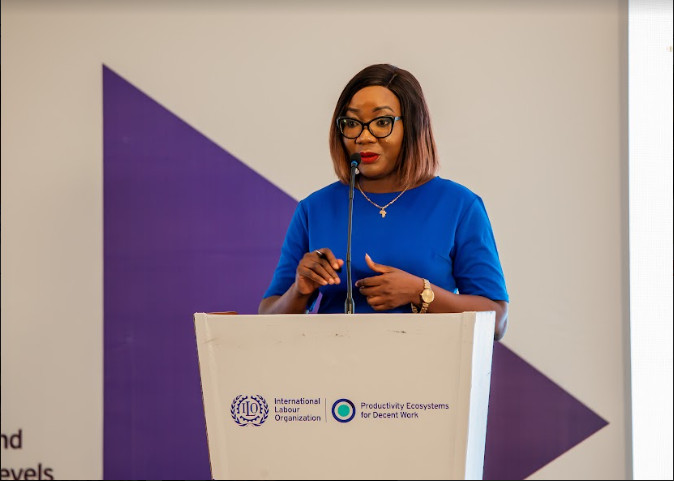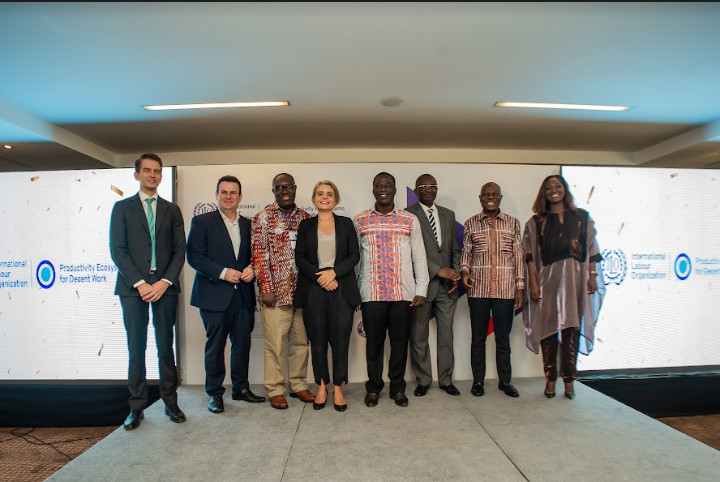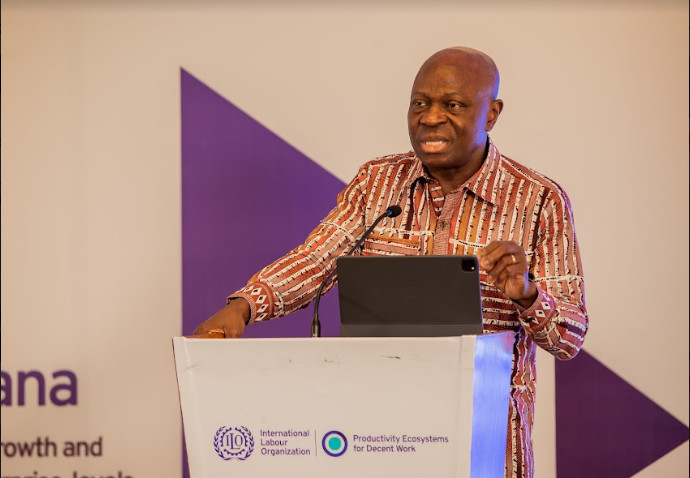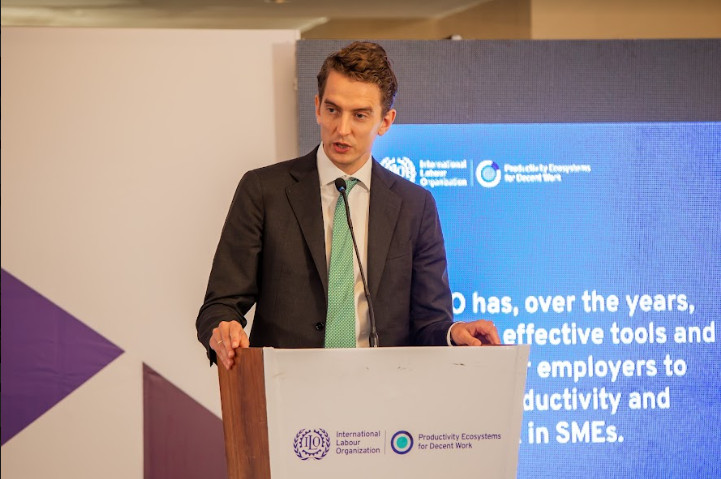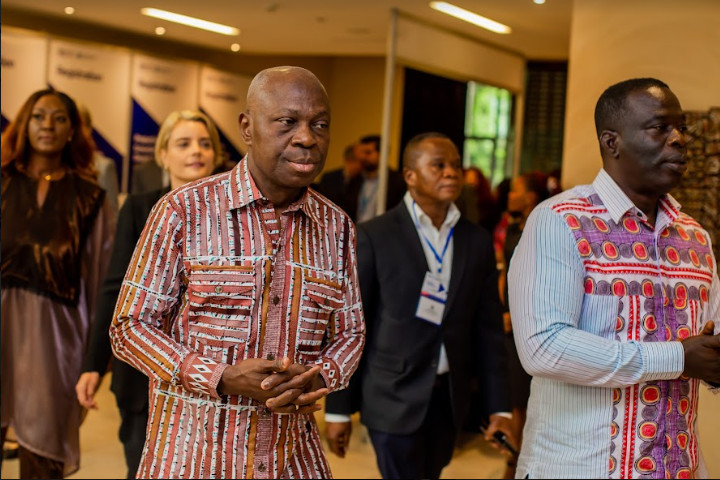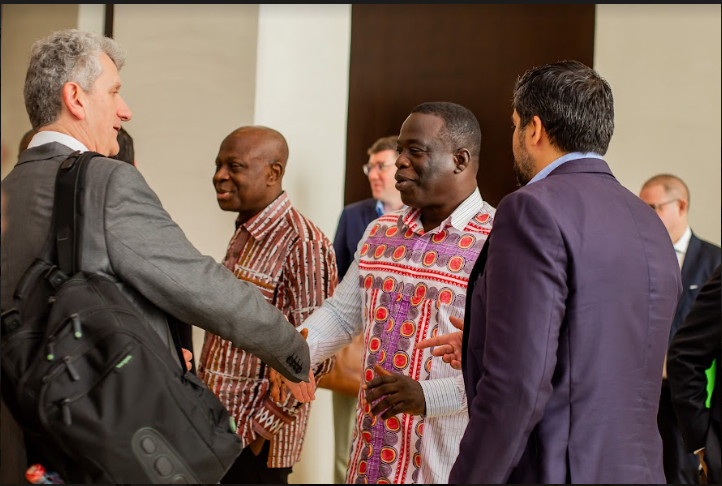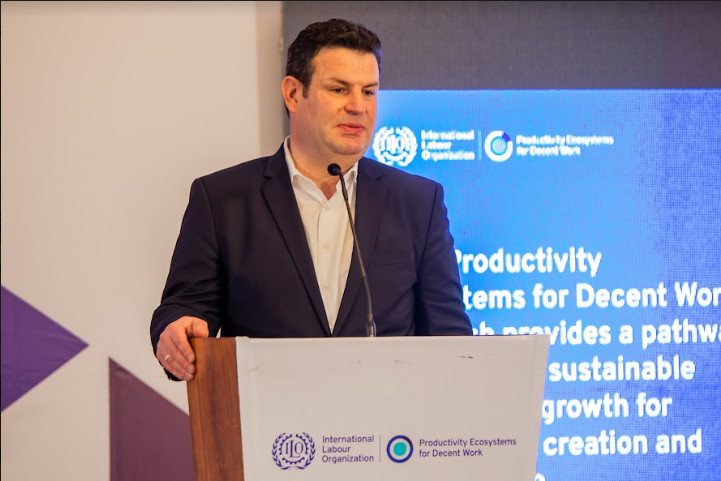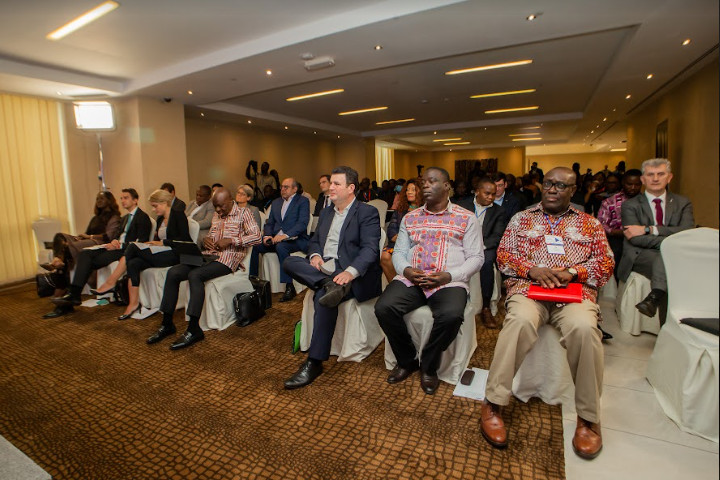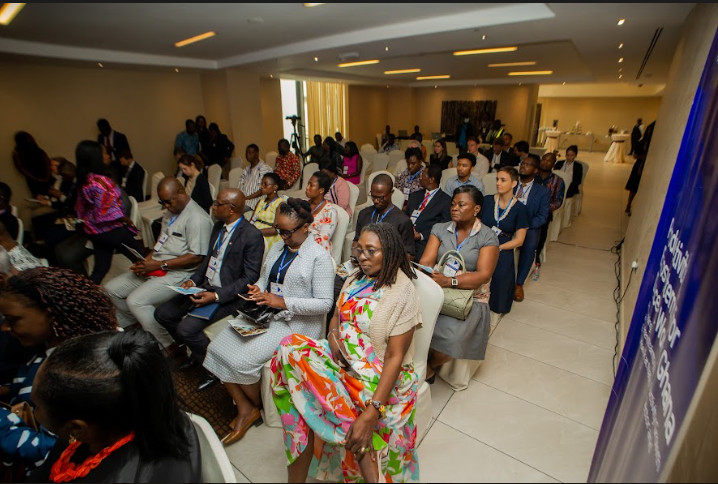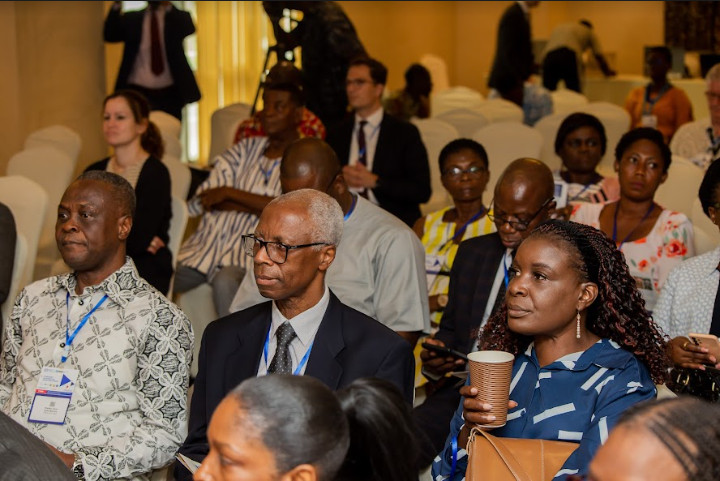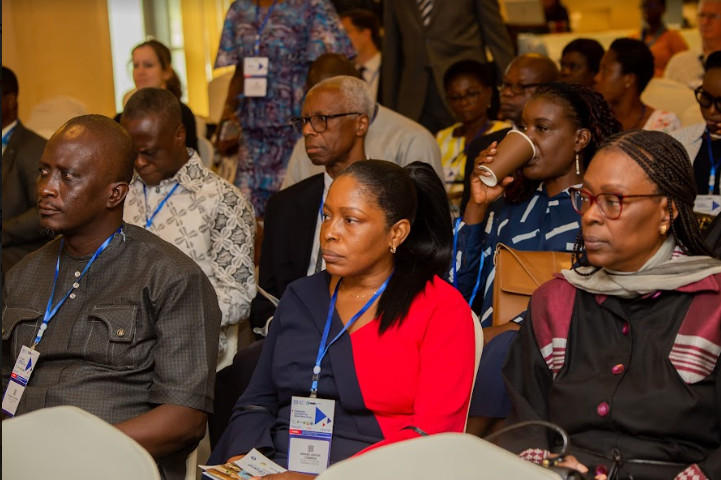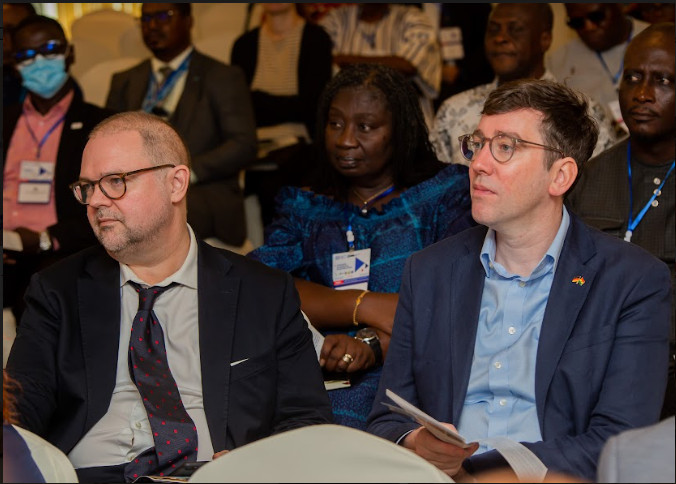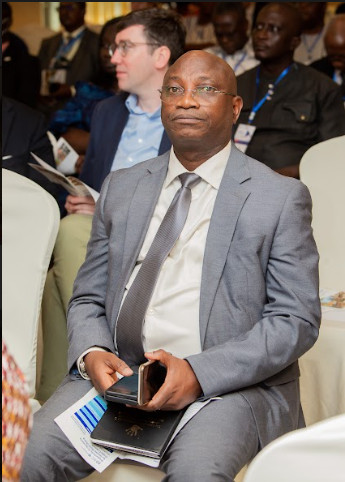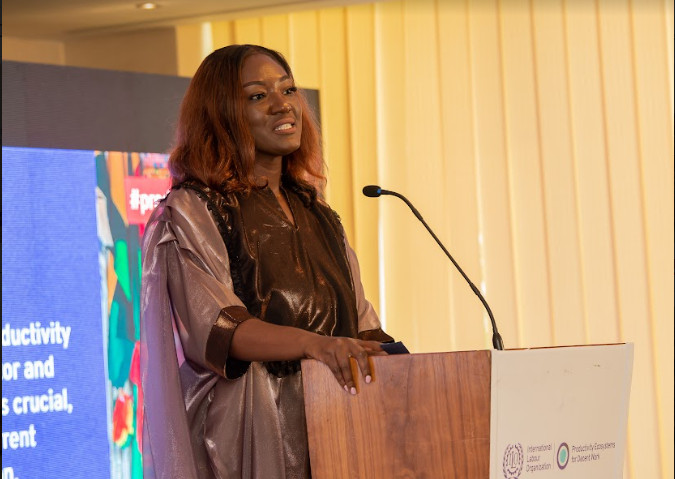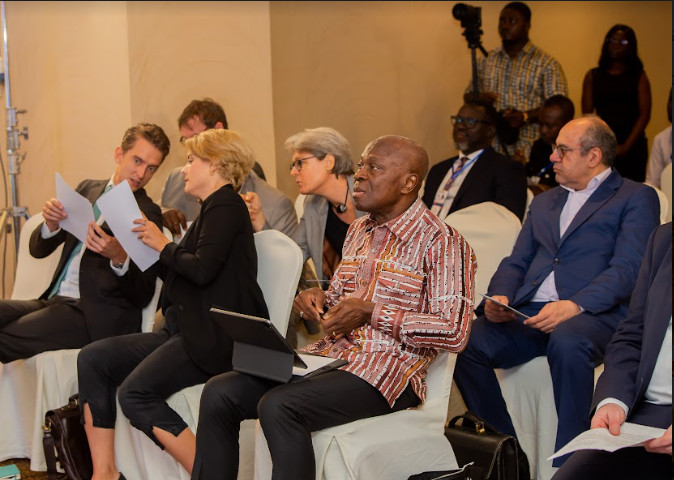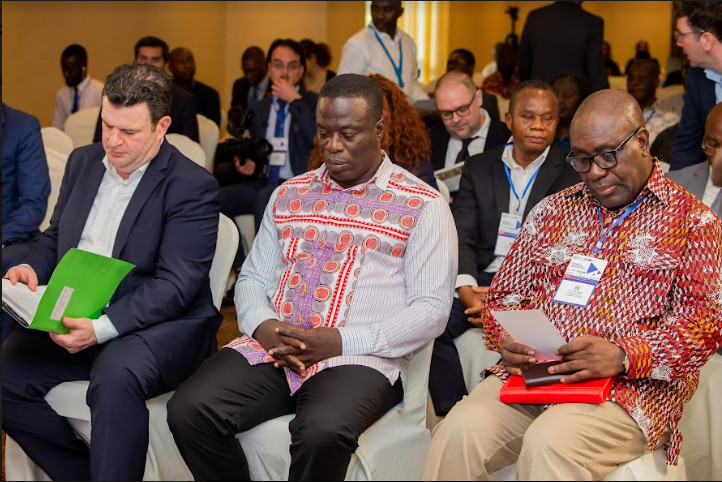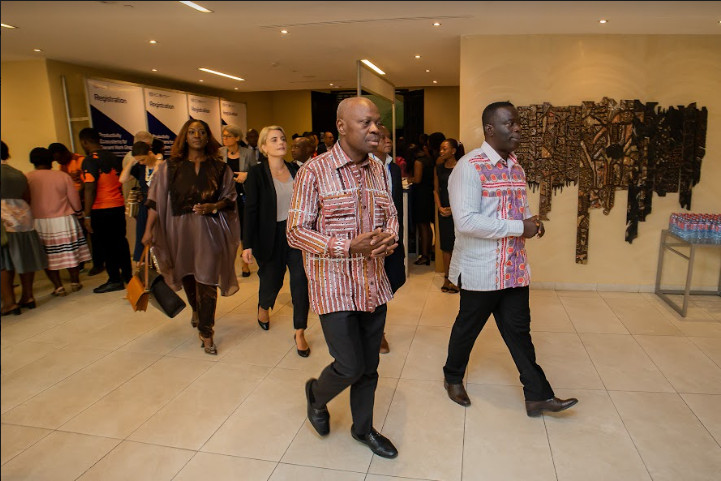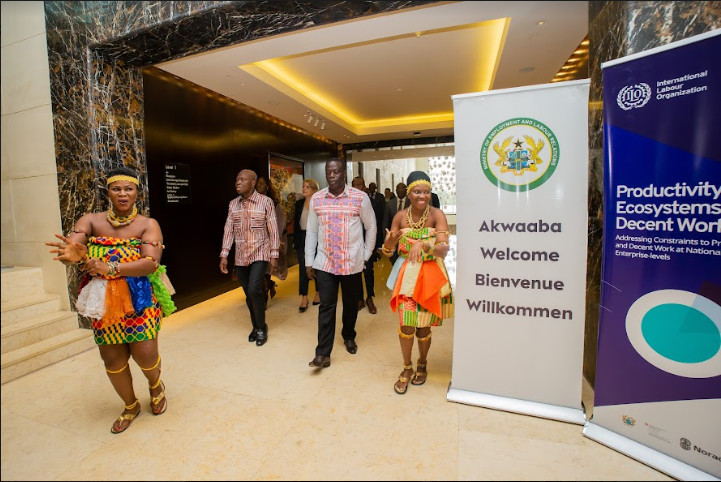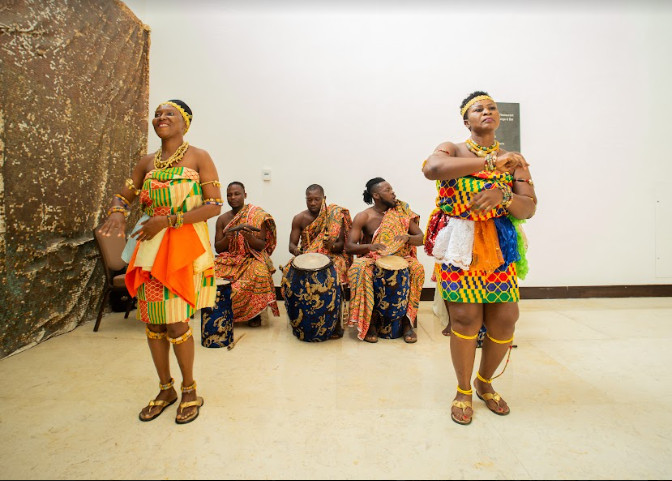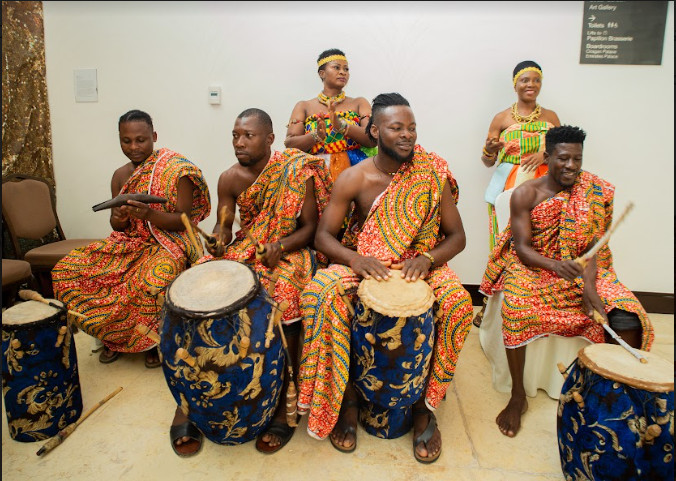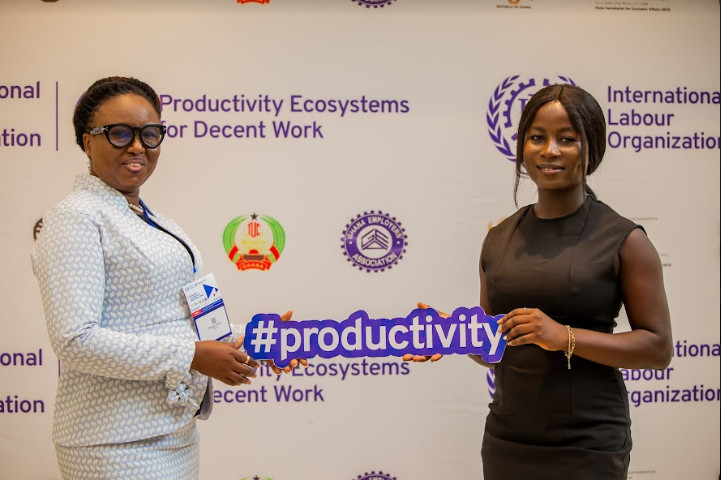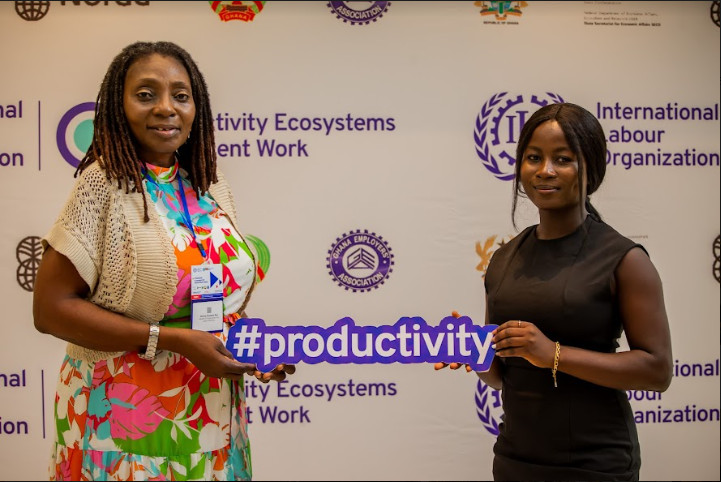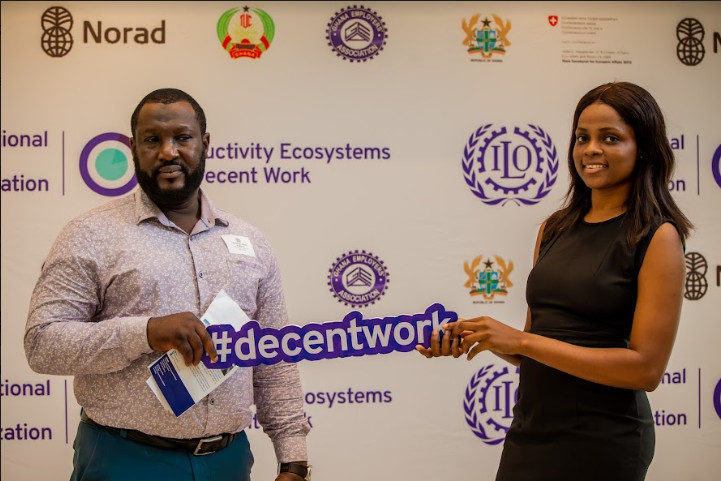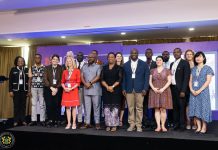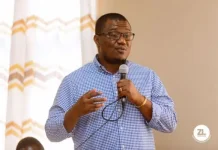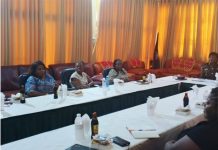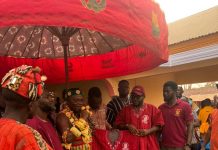Ghana’s Employment and Labour Relations Minister, Hon. Ignatius Baffour Awuah, on Wednesday, led the Director-General of the International Labour Organization (ILO) Gilbert F. Houngbo and other donor partners to formally launch the ‘Productivity Ecosystems for Decent Work Ghana’ seeking to address all employment and labour inequalities as well as bridging the gender gap in the world of work.
The project is also seeking to address constraints to productivity growth and decent job creation.
This is an initiative of the ILO, in collaboration with the Swiss State Secretariat for Economic Affairs (SECO) and the Norwegian Agency for Development Cooperation (NORAD).
The Productivity Ecosystems for Decent Work Programme, which was supported by the ILO’s Governing Body in March 2021, is running until the end of the year 2025.
Implemented by the ILO’s Enterprises and Employment Departments, in collaboration with SECO and NORAD, the Programme is being piloted in South Africa, Ghana and Viet Nam.
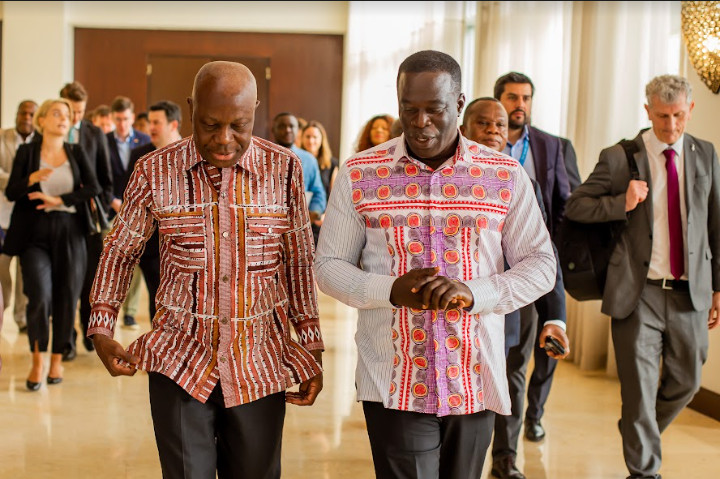
Speaking at the official launch of the project in Accra at the Kempinski Hotel, he mentioned that his Ministry was are very delighted to see this project coming into fruition.
“Let me also take this opportunity to thank ILO, if you look at the number of programs they have implemented in Africa, if I have my own ways I would say that Ghana has benefited from them more than any other country even though we are not a governing board member, that shows the kind of Trust the ILO has in us, so we are very grateful to you,” the minister said.
He thanked all donor partners particularly, the government of Switzerland as well as the government of Norway.
“And to our donors, the government of Switzerland as well as the government of Norway, we thank you for keeping your trust in us, you were with us on the SCORE projects and you are also going to be with us on other projects.
I want to believe that this particular project is taking over from the SCORE projects and it is the successes that we spot in the implementation of the SCORE projects which is urging us on to be able to implement this,” he stated.
Hon. Ignatius Baffour Awuah singled out and praised Mr. Amoh Osei for the major successes he led Ghana to chalk during the full implementation of the SCORE.
“And it is on this note I would want to single out one person who worked so hard in making the SCORE program very successful and it is no person than Mr. Amoh Osei. I am also happy that this project is going to be grounded on the principles of Tri-Partism and I see the elements in the projects, productivity for employers and I am quite sure that employers will be key because they know that this particular project is going to enhance their output.”
He continued “for workers, anytime we meet they ask what is their share, meaning they insist we accord them the greatest degree of decent work attributes and of course who is to provide the necessary cost system, that is the government; so you see all the three elements coming in and I want to believe that the project even though it was not conceived that the objective will be to bring all the three parties together.
The minister also appealed to those who are going to manage the project to attach a great degree of importance to it.
“Let us be committed to it, let us do our reviews on time, and make sure we are meeting timely. Unfortunately, the attitude with which some of our people attend to such projects, sometimes calls for so many questions. I want to plead to have more success stories. I would want to urge the ILO to continue being on the lookout to see whether we are on track or not.
To our financiers, I want to plead that when it becomes necessary for us to meet our financial obligations we do so on time so that there will be no delays in the implementation of the project. You can count on us for our necessary guidance for the project.
He admitted that when they were asked to make selections on specific programs to be included in the program they had a very hectic time.
This is because we were looking at areas like cashews, oil Palm, renewable energy, and garments, so for us as a country, all these areas are important to us. If you take renewable energy it is the order of the day, there is no way anybody can compete in the future without looking at renewable energy, so were we going to choose renewable energy and leave the others? That was one of the questions that came up.
And then if you look also at Cashews, in Ghana our number of export products have been cocoa but we needed to diversify our Agric base and one of the crops which comes to mind is the issue of cashew and focusing on the cashew will be building the future for Ghana in some other way apart from Cocoa.
Besides that, Ghana has two main climatic zones, we have the Southern climate which is partly tropic, and the middle and Northern belts which are also close to temperature. Cashew does very well in the middle part of Ghana and the Northern part of Ghana whiles oil palm also does very well in the Southern part of Ghana.
We have a very huge potential for oil Palm but the last time I check the statistics it is like we are not able to produce for our industries here in Ghana we still do import so focusing on that is another key area. It was a huge debate among members that made the choice but I think that the choices they made were right. Even though Ghana is in little stage, on records it is also true that the Southern part of Ghana has a low concentration of economic activities than the Northern section of this country,” explained the Minister.
He further said that concentrating on Sheer, which is predominantly Northern products is a way of boosting up economic activities in the North and also balancing the development divide.
“Also, the garments industry has a very huge potential to generate employment for our teenage persons and I am told if you pick anybody from the street and you take a person through training to be engaged within the government agencies, it is a way of creating employment and for me it is good we are focusing there.
He shared his experiences as a local Ambassador of Made in Ghana Garments.
“Ever since I became the minister, I have never worn a Western suit before. I believe it is also a way of promoting locally made goods, so I think our choices are right, and I said If I had my own ways I would plead to add one more product to it.”
Background
The decade following the global financial crisis has witnessed a consistent decline in productivity growth, a development that has been compounded by the Covid-19 pandemic.
This trend is of particular concern to most emerging and developing economies.
Here, the contribution of structural transformation (i.e. labour reallocation toward higher-productivity sectors as well as within-sector transformation) to productivity growth has slowed down and integration in global and regional value chains, which is key to boosting technology transfers, digitalization, and improved management processes at the enterprise level, is decreasing.
The strong growth in services sectors in many emerging and developing countries has also led to increased divergence in productivity, especially in those countries where jobs are moving from agriculture directly to services, bypassing manufacturing.
Rather than generating productive employment, this trend has expanded low-productivity informal jobs in the services sector while leaving low-productivity jobs in agriculture as the main provider of employment in developing countries.
Achieving a virtuous cycle between productivity and decent work is required if economic growth is to lead to poverty alleviation and prosperity. To create and strengthen this virtuous cycle, the ILO proposes the Productivity Ecosystems Programme.
The Programme is built on the recognition that productivity growth and the pre-Covid slow-down are determined by a myriad of interfacing dynamics across policy, markets, and enterprises (see figure below). Furthermore, the virtuous cycle between productivity and decent work, where productivity growth leads to decent job creation and vice-versa, is not automatic.
Productivity Ecosystem Conceptual Framework with a “Slice” of the Ecosystem Selected
Therefore, rather than using a “one size fits all” approach or intervening at a single level, the Programme will address productivity and decent work deficits across policy, sector and enterprise levels for win-win solutions that improve productivity and that ensure, through social dialogue, that gains are distributed equitably. For this purpose, the Programme will select a “slice” of the local productivity ecosystem, i.e. a sector and associated segment of the overall ecosystem in which the potential for productivity growth and decent job creation are aligned with the feasibility to intervene.
The Programme aims to achieve lasting change by addressing the root causes of low productivity – not just to treat the symptoms – and by promoting the capacity and ownership of local and national actors.
